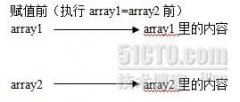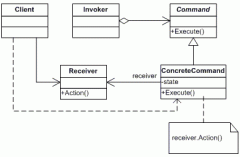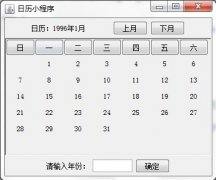学习Java Servlet 编程及应用之Cookie的使用方法
Servlet API 提供了一个Cookie 类,封装了对Cookie 的一些操作。Servlet 可以创建一个新的Cookie,设置它的关键字、值及有效期等属性,然后把Cookie 设置在HttpServletResponse 对象中发回浏览器,还可以从HttpServletRequest 对象中获取Cookie。
编程思路:Cookie 在实际的Servlet 编程中是很广泛应用,下面是一个从Servlet 中获取Cookie 信息的例子。
ShowCookies.java 的源代码如下:
import javax.servlet.*;
import javax.servlet.http.*;
/**
* <p>This is a simple servlet that displays all of the
* Cookies present in the request
*/
public class ShowCookies extends HttpServlet
{
public void doGet(HttpServletRequest req, HttpServletResponse resp)
throws ServletException, java.io.IOException
{
// Set the content type of the response
resp.setContentType("text/html;charset=gb2312");
// Get the PrintWriter to write the response
java.io.PrintWriter out = resp.getWriter();
// Get an array containing all of the cookies
Cookie cookies[] = req.getCookies();
// Write the page header
out.println("<html>");
out.println("<head>");
out.println("<title>Servlet Cookie Information</title>");
out.println("</head>");
out.println("<body>");
if ((cookies == null) || (cookies.length == 0)) {
out.println("没有 cookies ");
}
else {
out.println("<center><h1>响应消息中的Cookies 信息 </h1>");
// Display a table with all of the info
out.println("<table border>");
out.println("<tr><th>Name</th><th>Value</th>" + "<th>Comment</th><th>Max Age</th></tr>");
for (int i = 0; i < cookies.length; i++) {
Cookie c = cookies[i];
out.println("<tr><td>" + c.getName() + "</td><td>" +
c.getValue() + "</td><td>" + c.getComment() + "</td><td>" + c.getMaxAge() + "</td></tr>");
}
out.println("</table></center>");
}
// Wrap up
out.println("</body>");
out.println("</html>");
out.flush();
}
/**
* <p>Initialize the servlet. This is called once when the
* servlet is loaded. It is guaranteed to complete before any
* requests are made to the servlet
* @param cfg Servlet configuration information
*/
public void init(ServletConfig cfg)
throws ServletException
{
super.init(cfg);
}
/**
* <p>Destroy the servlet. This is called once when the servlet
* is unloaded.
*/
public void destroy()
{
super.destroy();
}
}
相关新闻>>
- 发表评论
-
- 最新评论 进入详细评论页>>






